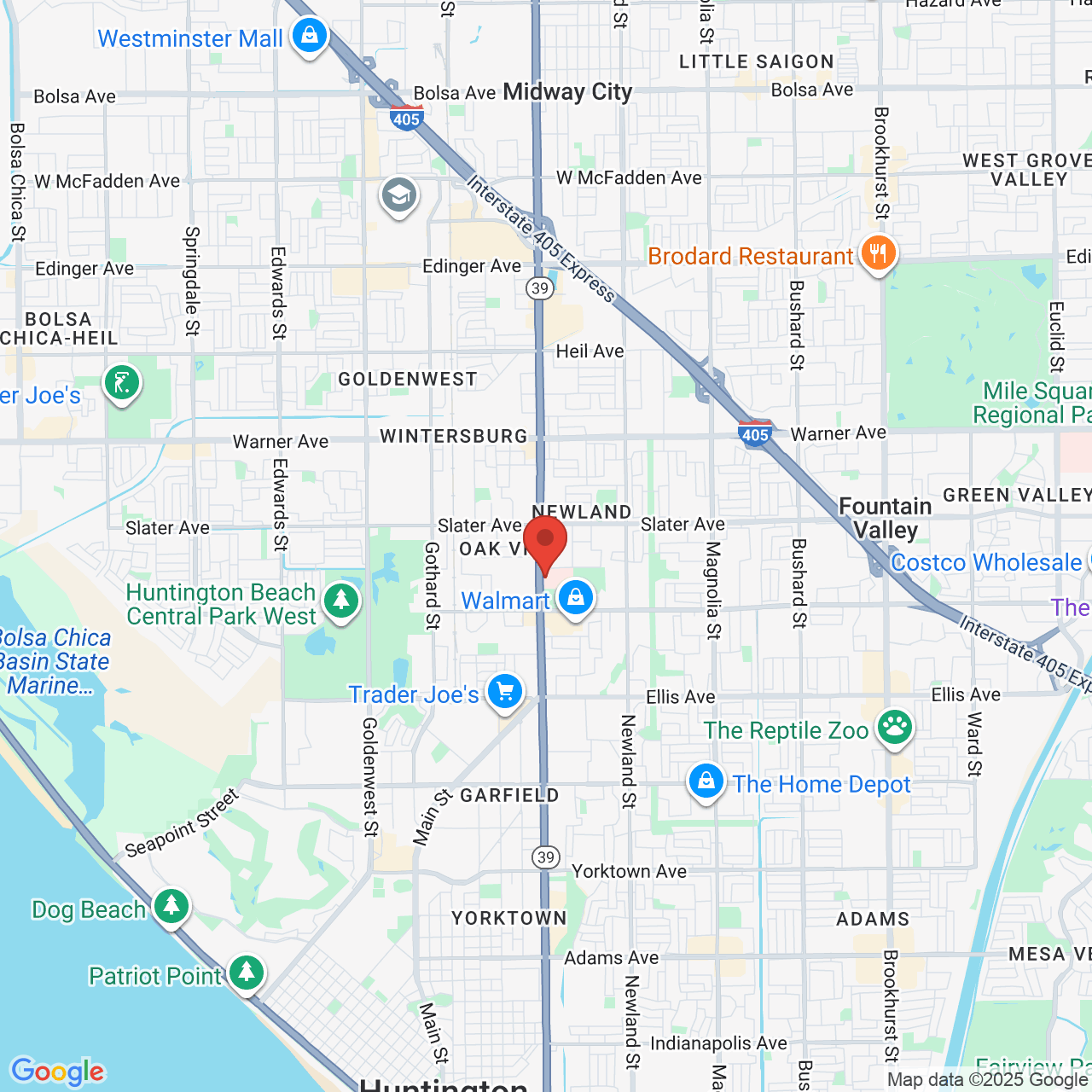TMJ Treatment Huntington Beach “Dr. Mortensen has been our dentist for over 20 years. Always excellent work.” — Jerry, 5-Star Patient Review
- 40+ Years Experience
- LVI-Trained Care
- Advanced TMJ Imaging
- Full-Spectrum Treatment Plans
TMJ vs. TMD Understanding the Difference
TMJ
People often use the term TMJ to describe the disorder. However, TMJ stands for temporomandibular joint. These joints connect the lower jaw to your skull.
TMD
TMD, also known as temporomandibular disorder or TMJ disorder, is the disorder or condition that affects the TMJs.
Don’t Ignore the Warning Signs Book an Appointment Today
Jaw discomfort, clicking or popping sounds, headaches, or facial tension might seem like minor inconveniences, but they can be early indicators of a serious condition affecting your temporomandibular joints. These symptoms are often overlooked or dismissed as stress-related, which delays treatment and allows the issue to worsen over time.
Temporomandibular disorder can impact more than just your jaw. It can affect how you eat, speak, sleep, and concentrate. Left untreated, it can cause long-term damage to your teeth and joints, requiring more invasive procedures down the line.
At our Huntington Beach dental practice, Dr. Andrew Mortensen utilizes advanced imaging and decades of diagnostic expertise to pinpoint the root cause of your symptoms and provide targeted, lasting relief. From splint therapy to orthodontic realignment, we offer effective solutions tailored to your needs.
If you are ready to find answers and feel better, now is the time to act. Contact our team today to schedule your appointment and begin your journey toward relief and long-term wellness.

Call us or request a consultation online. Your comfort and health are our priority.
Symptoms of TMD
Temporomandibular disorder includes a variety of possible symptoms that involve the TMJ. Symptoms of TMD include:
- Stiffness and pain in the jaw
- Headaches
- Clicking sounds in the jaw
- Popping in the ears
- Teeth grinding
- Restricted jaw movement
- Jaw clenching
- Tension and pain in the neck, face, and shoulders
- Toothaches
- Earaches
- Difficulty sleeping
When left untreated, issues with the TMJs can affect your overall quality of life, causing disturbances in your sleep and concentration. TMD can also cause excessive wear on your teeth and degeneration of the jaw joints.
Your Headaches Could Be Caused by TMD Our Huntington Beach, CA, Dental Practice Can Help
Issues with the temporomandibular joint are often overlooked as a cause of chronic headaches as they are often blamed on stress and other conditions. However, problems with the TMJ can contribute to chronic headaches, and some patients often don't realize they are a TMD symptom. If you suffer from recurring headaches and migraines, Dr. Mortensen can examine your mouth, teeth, and jaw to determine if your headaches are a symptom of TMJ disorder.
Think your headaches could be TMD? Contact Dr. Mortensen today.

Hear From a Happy Huntington Beach Patient
“The staff is very friendly and welcoming. Dr. Mortensen with his years of professional experience is very competent and knowledgeable and thorough in his diagnosing of a problem and subsequent treatment. Being a newer patient thus far I can say that I am very pleased.”
— Kathy, 5-Star Review
How TMD Treatment Benefits You
Pain from TMD can affect your daily life and sleep, leading to issues with your overall health. Benefits of TMD treatment at our Huntington Beach dental clinic include:
Pain relief
Improved sleep
Better quality of life
Reduced wear on your teeth
Full functionality of the jaw
Is Bruxism the Same As Temporomandibular Disorder?
Bruxism
Bruxism is the act of clenching or grinding your teeth. This can occur when you are awake or during sleep. Bruxism can be a symptom of stress or anxiety, but some patients also report bruxism while concentrating on some tasks. In these cases, relaxation exercises such as meditation, deep breathing, and yoga can be helpful. However, the condition can also be caused by certain medications. Not all people with bruxism have TMD.
TMD
Just because you grind or clench your teeth doesn't mean you have TMD. However, if you do have recurrent bruxism, you have an increased risk of developing TMD. Swift treatment for bruxism can help prevent further stress on your temporomandibular joints. Something as simple as a nightguard can protect your jaw and your teeth to prevent further issues and damage.
The Most Common Causes of TMD
The most common cause of TMJ disorders is trauma or an injury to the jaw and surrounding jaw joints and tissue. However, patients may experience TMD due to issues such as:
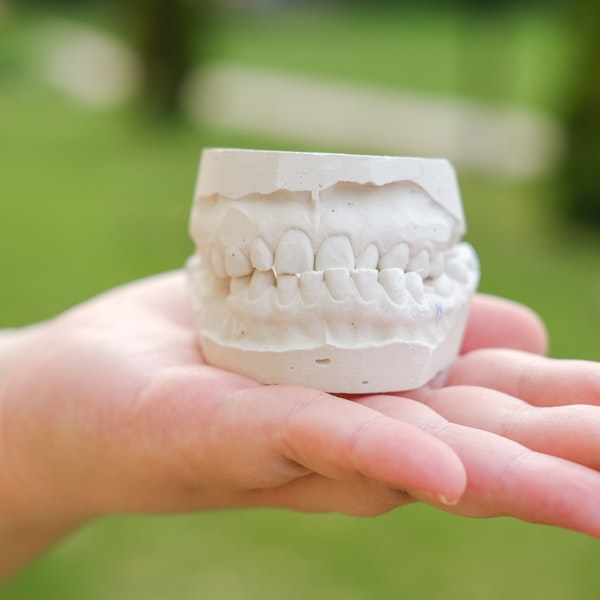
Misaligned Bite
Orthodontic issues such as a misaligned bite can be the culprit of TMD. As you try to compensate or realign your bite to eat and speak, this causes additional strain on the joints.

Stress and Anxiety
Stress and anxiety can be major contributors to temporomandibular disorders. Patients who are stressed or anxious often report bruxism, which is characterized as jaw clenching and teeth grinding. Bruxism puts added stress on your temporomandibular joints and teeth.

Health Conditions
Certain health-related issues such as arthritis, infections, and autoimmune conditions can put you at a higher risk for developing TMJ disorders. Genetics can also play a factor in your risk of developing TMD.
You Don't Have to Live With TMJ Pain Call Our Huntington Beach Dental Practice Today
Issues and pain with the temporomandibular joint can affect your quality of life and lead to further oral health concerns. Dr. Andrew G. Mortensen and his team are here to help get you the relief you need and deserve.
Dr. Mortensen has over 40 years of experience in the field of dentistry and trained at the prestigious Las Vegas Institute. He can treat your TMD to help ease and eliminate your symptoms. Contact us today using our online form or call our dental practice in Huntington Beach, CA, to schedule a consultation.
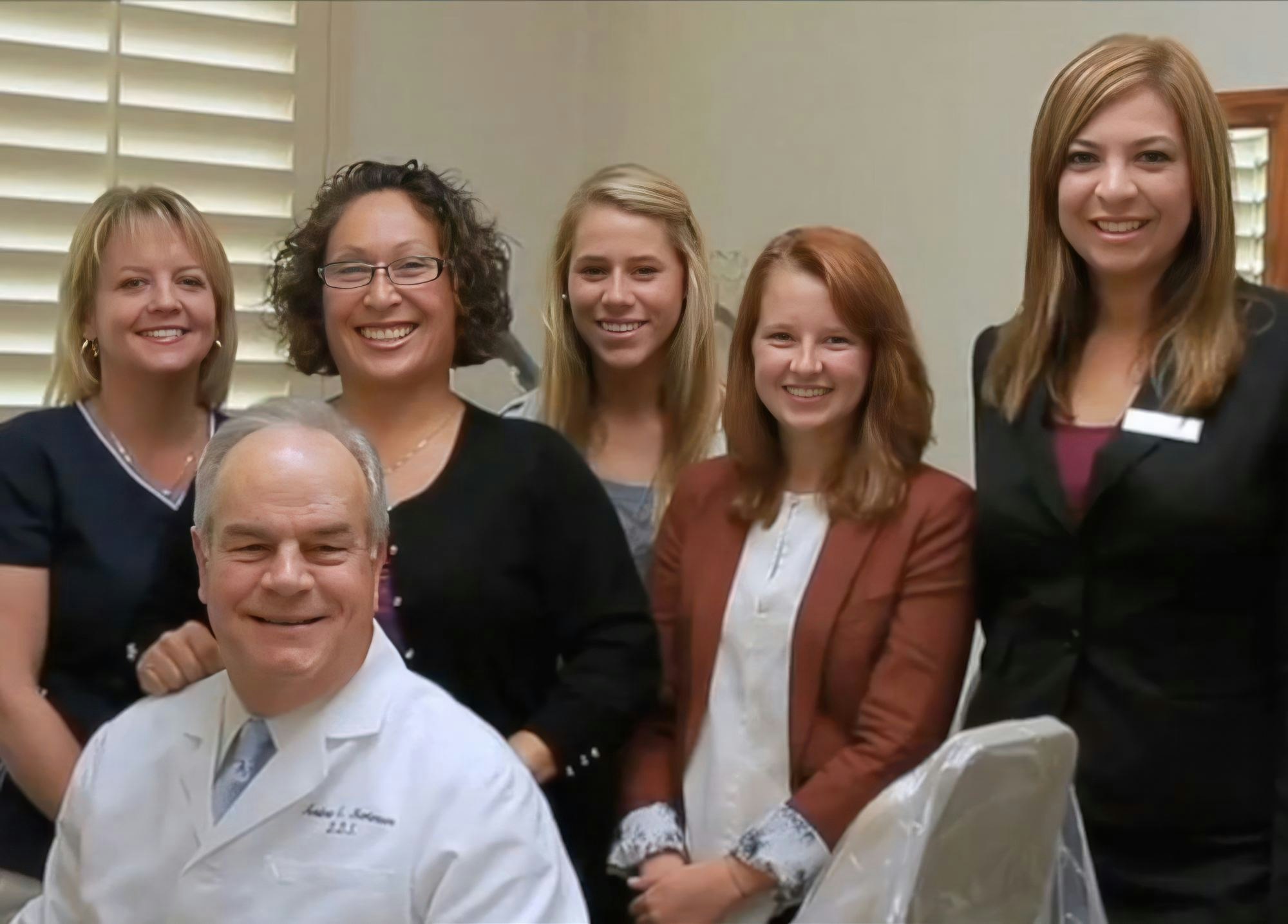
Improving Lives and Smiles in Huntington Beach, CA
“Dr. Mortensen and staff are the best! I've recommended a lot of people here and everyone loves them.”
— Lynn, 5-Star Review
TMD Diagnosis and Treatment
During your consultation at our Huntington Beach, CA, dental practice, your dentist will discuss your symptoms and examine your mouth and jaw to determine your physiologic rest position. Using digital X-rays and advanced imaging technology, Dr. Mortensen will carefully map your temporomandibular joints.
Once your physiologic rest position is determined, your dentist will use the images of your mouth, teeth, and TMJs to develop a personalized treatment plan. This treatment plan is completely customized to your needs and may include:
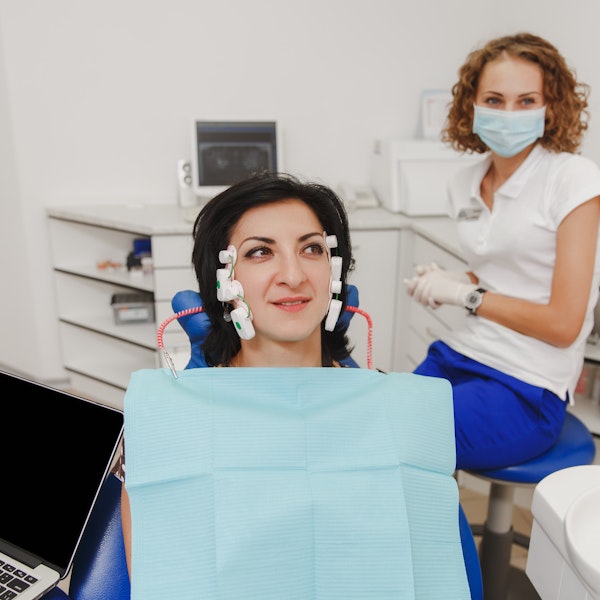
Neuromuscular Dentistry
Dr. Mortensen may use neuromuscular dentistry to treat TMD. Neuromuscular dentistry focuses on correcting a misaligned jaw and relaxing the muscles in the jaw to ease the stress and strain on the joints.
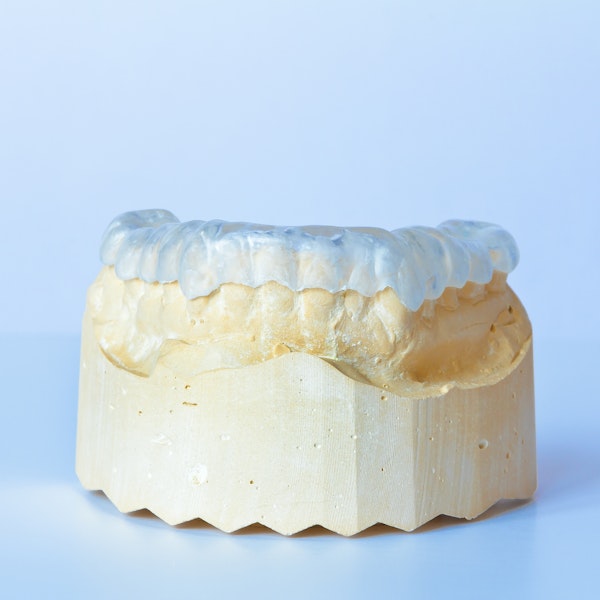
Splint Therapy
Splint therapy works by using custom splits to reposition your jaw. This relieves stress and tension on the joints, prevents teeth grinding, and moves your jaw to a more comfortable position. These custom splints are usually worn at night but can be worn during the day as well.

Orthodontics
Orthodontic treatments such as traditional braces or clear aligners work by realigning your bite. Orthodontic treatment can provide you with TMJ pain relief as it relieves stress on the TMJs and prevents wear on your teeth.

Anti-Inflammatory Medications
Anti-inflammatory medications can not only help relieve the pain associated with TMD, but also the inflammation that is often a symptom of TMD. By reducing inflammation and pain, tension is often relieved, which can put further stress on your TMJs.
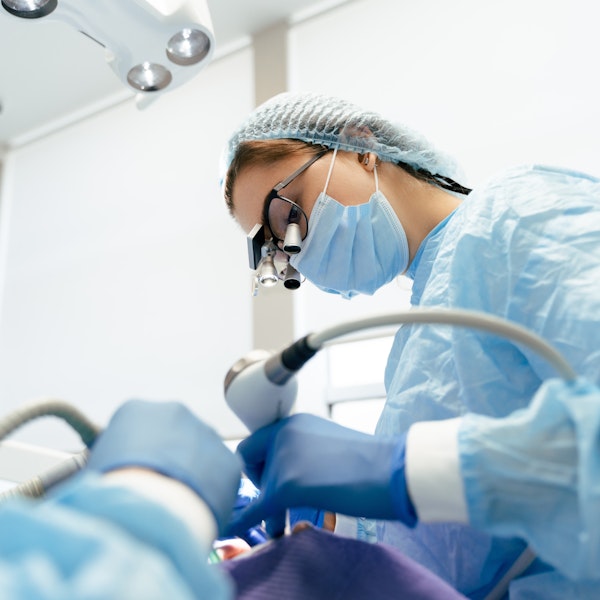
Surgery
Minimally invasive techniques are the first line of treatment before other approaches and treatments are considered. Dr. Mortensen will only recommend surgery if it is absolutely needed or if non-invasive therapy such as splints and orthodontic work fails.
Have questions about TMD treatment? We have answers!
Take a Closer Look at the Effects of TMD
TMJ disorder can create tension in the neck, head, and face, leading to headaches and other symptoms.
Frequently Asked Questions About Temporomandibular Joint Disorder
Does treatment for TMD hurt?
No. We recommend conservative treatments whenever possible, and visiting us can often relieve painful TMJs. If you require a treatment like a dental crown to realign your bite, we will administer local anesthetic to completely numb the area. For especially nervous patients, we offer sedation dentistry so you can remain relaxed throughout the entire procedure.
Will insurance pay for my TMD treatment?
Treatment for TMD is often considered medically necessary, not elective, so it is at least partially covered. However, this will vary based on your dental insurance plan and provider. We accept many types of insurance to help reduce your out-of-pocket costs. We will verify your coverage before your treatment begins so you can plan and budget.
I have symptoms, but it isn't painful. Should I still seek treatment?
Yes! Early diagnosis and treatment can prevent excessive wear and stress on your temporomandibular joints as well as your teeth. This can keep you from developing painful symptoms that require more costly and intensive care later.
Do you have more questions about temporomandibular disorder, the cost of treatment, or what your particular TMD treatment could entail? Give us a call in Huntington Beach, CA, or send us a message.
“No one looks forward to going to the dentist but the friendly staff at Dr. Mortensen always makes it pleasant experience.”
— Gil, 5-Star Review



